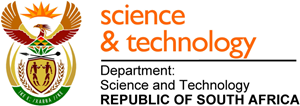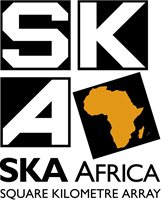Department of Science and Technology (DST)
 The Department’s mission is to develop, co-ordinate and manage a national system of innovation that will bring about maximum human capital, sustainable economic growing and improved quality of life for all.
The Department’s mission is to develop, co-ordinate and manage a national system of innovation that will bring about maximum human capital, sustainable economic growing and improved quality of life for all.
The DST is investing in the Centre for Broadband Communication via various government subsidiaries (see below) to extend its mission via its objective of growing the country’s research capacity. Its work also aligns with the National Broadband Policy for South Africa to “ensure universal access to reliable, affordable and secure broadband infrastructure and services by 2020”.
It has committed R2.2m a year for three years towards operational funding for the Centre.
Council for Scientific and Industrial Research (CSIR)
 The CSIR is one of the leading scientific and technology research, development and implementation organisations in Africa. It has been mandated by the DST to implement partnerships with organisations that are directly contributing towards ICT research, development and innovation.
The CSIR is one of the leading scientific and technology research, development and implementation organisations in Africa. It has been mandated by the DST to implement partnerships with organisations that are directly contributing towards ICT research, development and innovation.
The CSIR’s ICT operating unit, Meraka, will work closely with Nelson Mandela University to support the design and specification elements of the SKA project’s data transport needs, while also helping to produce the next generation of high-end academic skills for the next generation of networking in South Africa.
National Research Foundation (NRF)
 The NRF is an independent government agency that promotes and supports research through funding, human resource development and facilities to grow knowledge, innovation and development in all fields of science and technology, to improve the quality of life for all South Africans.
The NRF is an independent government agency that promotes and supports research through funding, human resource development and facilities to grow knowledge, innovation and development in all fields of science and technology, to improve the quality of life for all South Africans.
As a result, the NRF has a vested interest in ensuring that the new Centre is a success.
The Square Kilometre Array (SKA)
 The SKA is mega multi-national project, backed by the DST, to build a radio telescope up to 50 times more sensitive, and 10 000 times faster survey speed, than today’s best radio astronomy facilities. The facility is being constructed, in a phased approach, in South Africa and Australia, and will test the limits of engineering and scientific endeavour over the next decade.
The SKA is mega multi-national project, backed by the DST, to build a radio telescope up to 50 times more sensitive, and 10 000 times faster survey speed, than today’s best radio astronomy facilities. The facility is being constructed, in a phased approach, in South Africa and Australia, and will test the limits of engineering and scientific endeavour over the next decade.
Building the SKA will require the development of cutting-edge technology and innovation, which is where Nelson Mandela University’s new Centre of Broadband Communication comes in to play as its researchers seek solutions in providing faster, cheaper new-generation optical fibre as it forms “the backbone” for aggregating tremendous amounts of data gathered from what will be the world’s largest radio telescope.
Cisco
 Cisco is a worldwide leader in IT whose aim is help others seize opportunities to connect the previously unconnected. Their core philosophy is that impact multiplies whenever human and technology networks combine to solve a problem.
Cisco is a worldwide leader in IT whose aim is help others seize opportunities to connect the previously unconnected. Their core philosophy is that impact multiplies whenever human and technology networks combine to solve a problem.
As a result, Cisco is enabling Nelson Mandela University to add value to the SKA project by investing in a multi-million rand equipment, as well as providing the new Centre for Broadband Communication with access to key expert resources within the organisation.
This will allow Nelson Mandela University to conduct world-class, pioneering research on next generation optical transport systems with application to SKA and other projects.